International Standardization
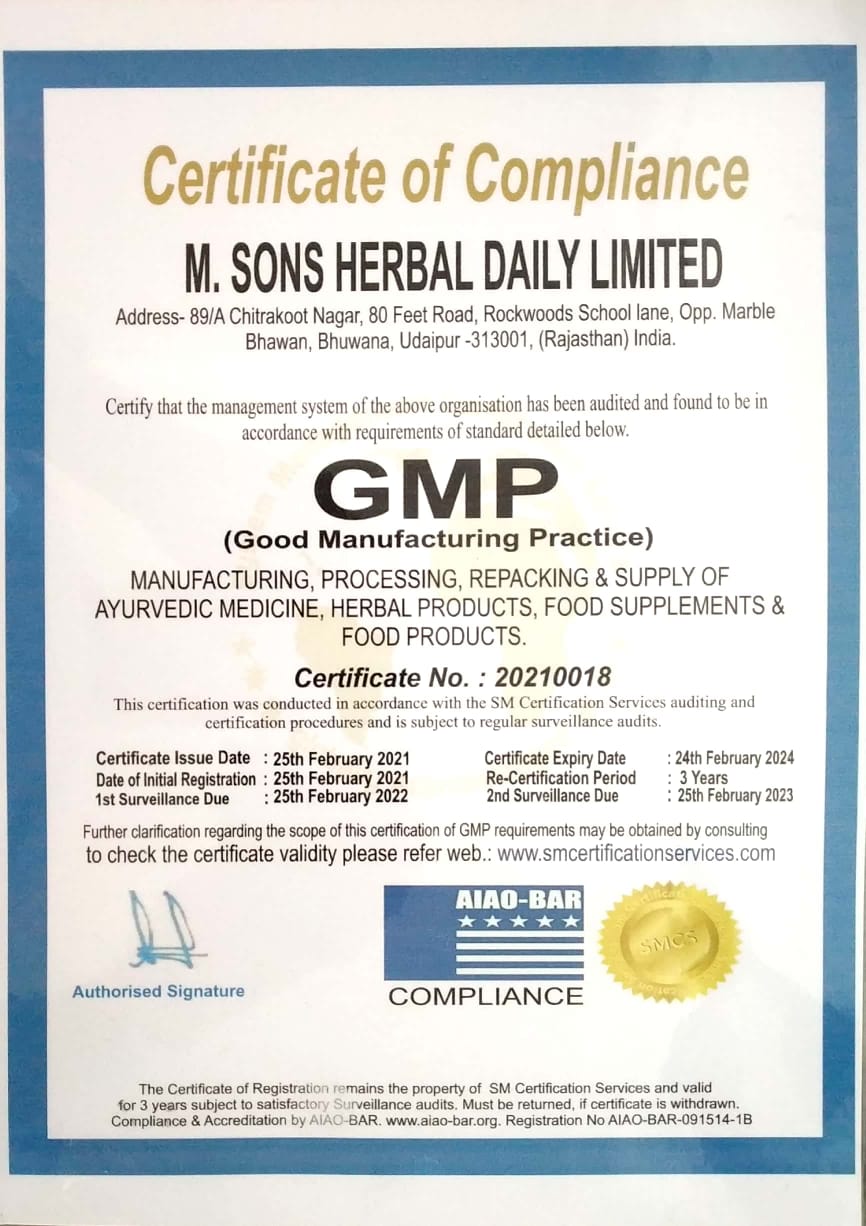
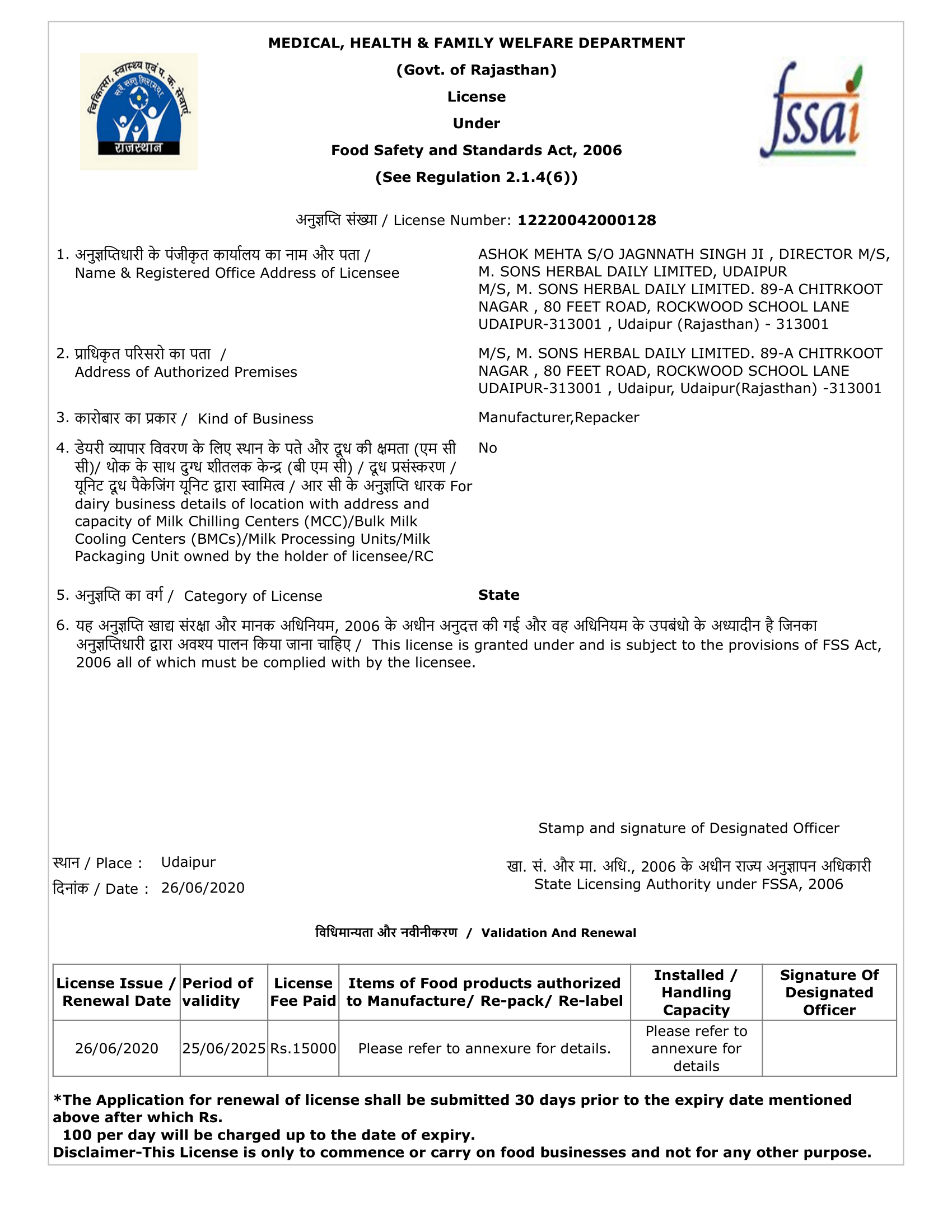
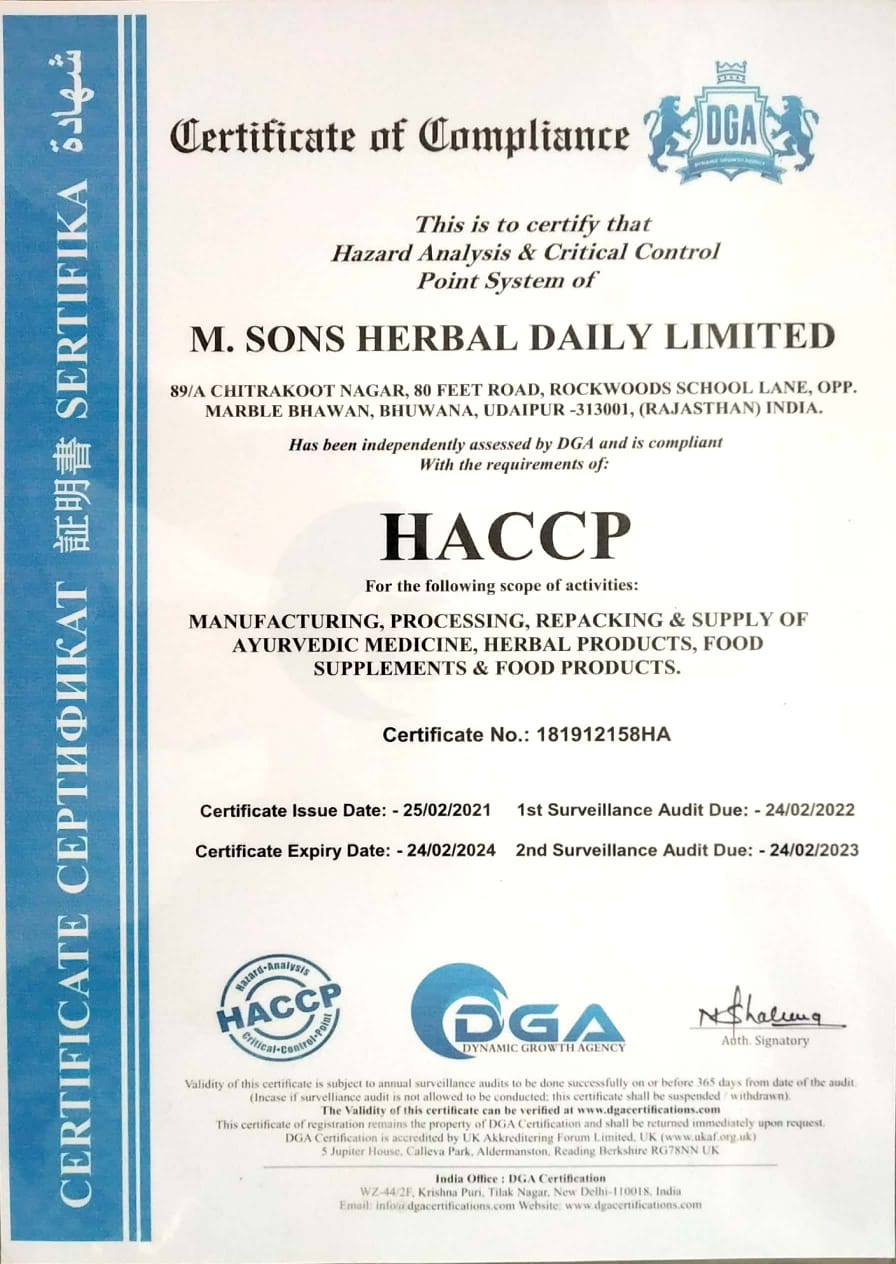
HACCP (Hazard Analysis and Critical Control Point) is a system that helps food business operators look at how they handle food and introduces procedures to make sure the food produced is safe to eat. It is a management system in which food safety is addressed through the analysis and control of biological, chemical, and physical hazards from raw material production, procurement, and handling, to manufacturing, distribution, and consumption of the finished product.
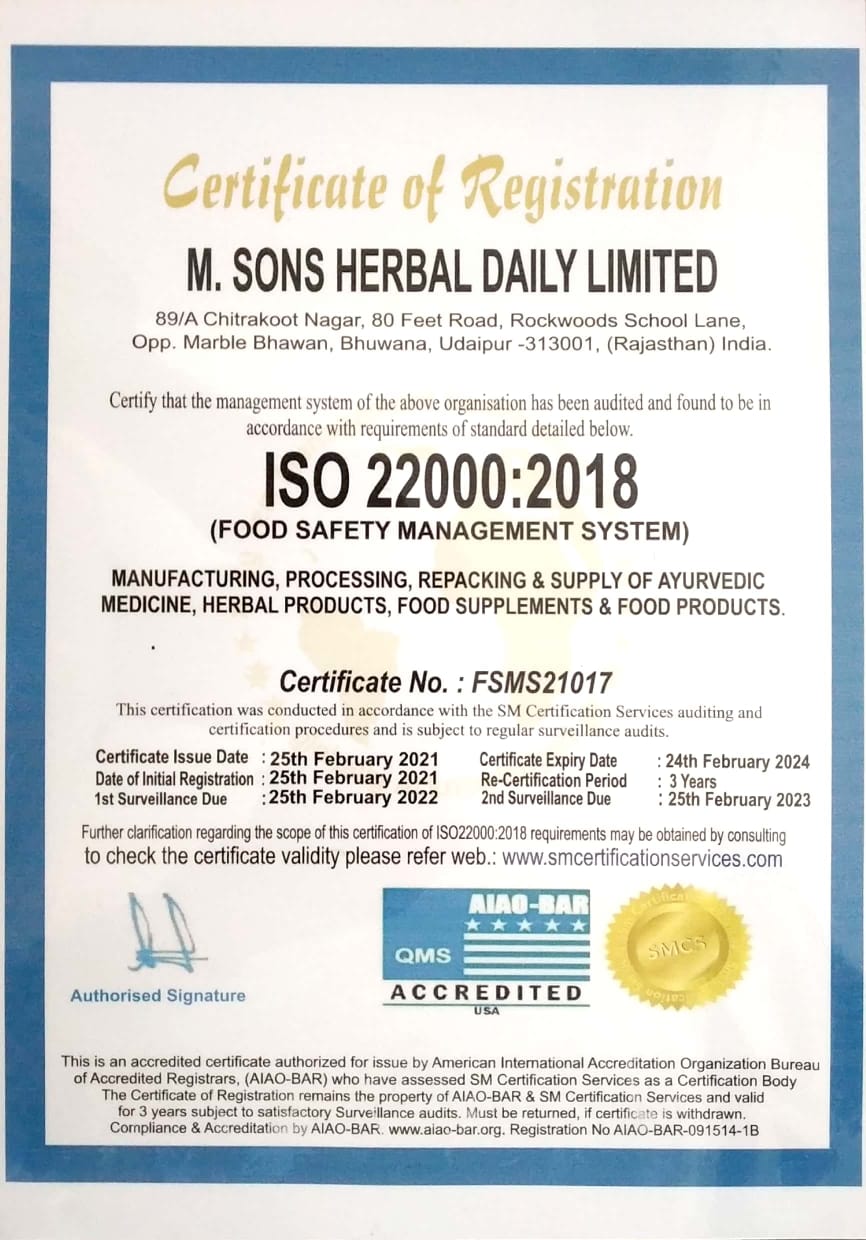
ISO, founded in 1947, is a worldwide federation of national standards bodies from some countries, with one standards body representing each member country. ISO 22000:2005 specifies requirements for a food safety management system where an organization in the food chain needs to demonstrate its ability to control food safety hazards in order to ensure that food is safe at the time of human consumption.
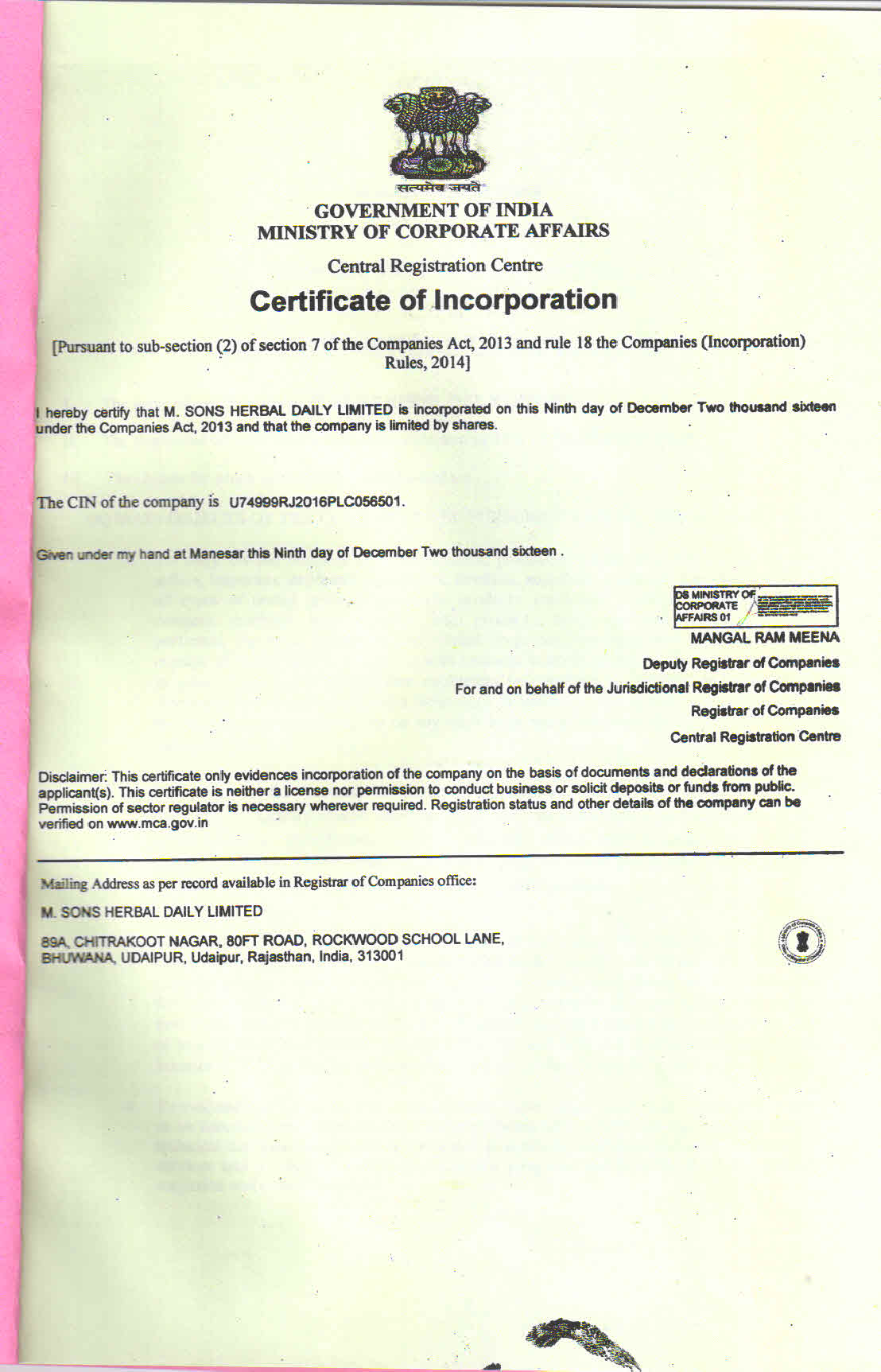
CERTIFICATE OF INCORPORATION
A certificate of incorporation is a legal document relating to the formation of a company or corporation. It is a license to form a corporation issued by the state government or, in some jurisdictions, by a non-governmental entity. Its precise meaning depends upon the legal system in which it is used.
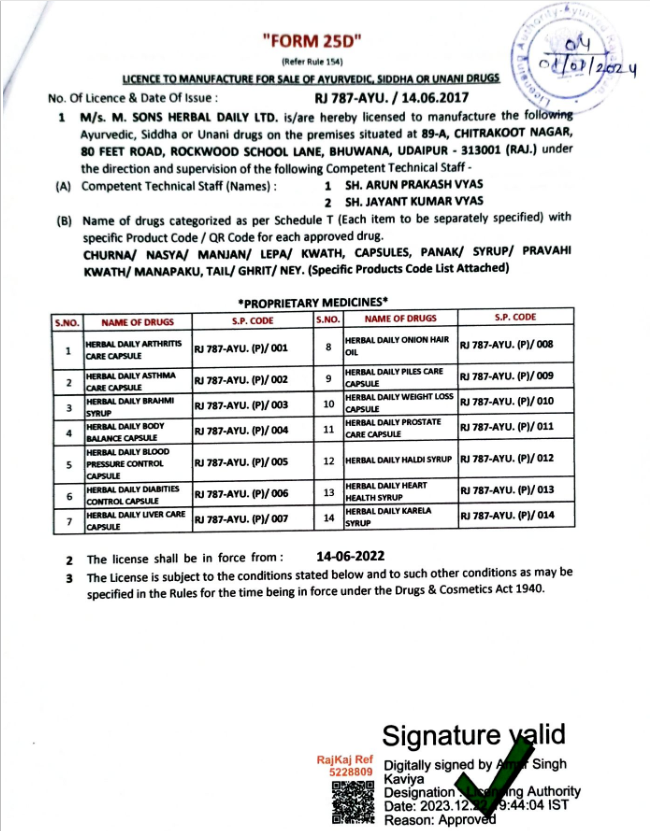
FORM 25- D
Form 25 D is a license to manufacture for sale (or for distribution) of Ayurvedic (including Siddha) and Unani drugs on the premises under the direction and supervision of the technical staff.
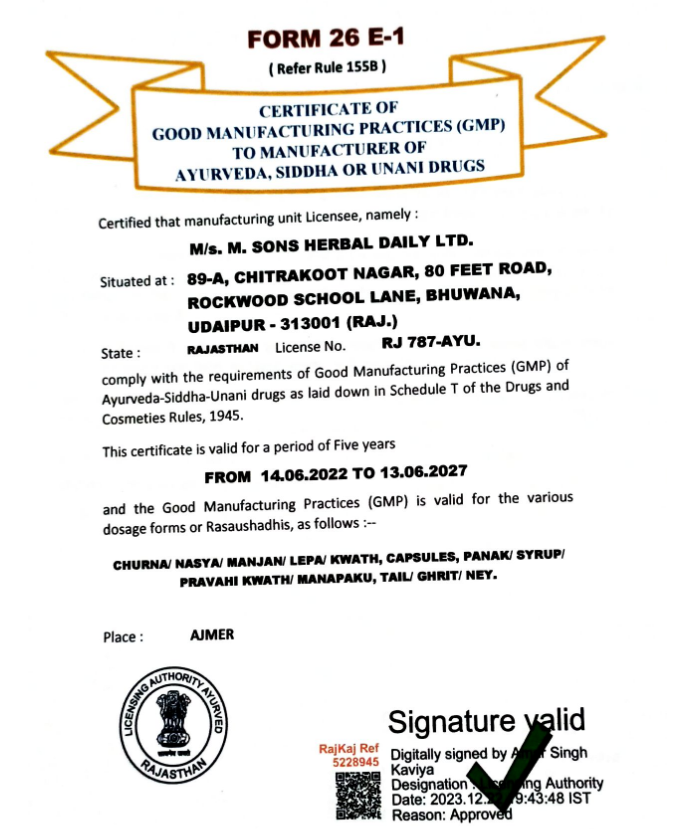
Good manufacturing practice (GMP) is a system for ensuring that products are consistently produced and controlled according to quality standards. The government of India has made the GMP mandatory for all. It is now a strategy on the production of traditional medicinal formulations, that production is based on a thorough analysis of the prevailing conditions during purchase, quality control, packaging, and marketing.


